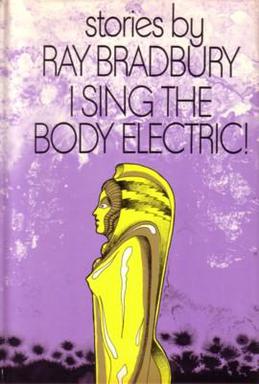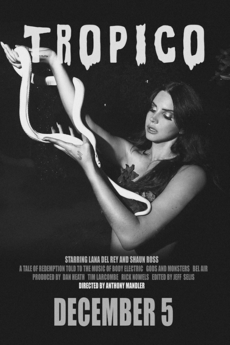Related Research Articles

Walter Whitman Jr. was an American poet, essayist, and journalist. He is considered one of the most influential poets in American literature. Whitman incorporated both transcendentalism and realism in his writings and is often called the father of free verse. His work was controversial in his time, particularly his 1855 poetry collection Leaves of Grass, which was described by some as obscene for its overt sensuality.

Leaves of Grass is a poetry collection by American poet Walt Whitman. Though it was first published in 1855, Whitman spent most of his professional life writing, rewriting, and expanding Leaves of Grass until his death in 1892. Six or nine individual editions of Leaves of Grass were produced, depending on how they are distinguished. This resulted in vastly different editions over four decades. The first edition was a small book of twelve poems, and the last was a compilation of over 400.

"Song of Myself" is a poem by Walt Whitman (1819–1892) that is included in his work Leaves of Grass. It has been credited as "representing the core of Whitman's poetic vision."
"I Sing the Body Electric" is an 1855 poem from Leaves of Grass by Walt Whitman.

Richard Wright Nowels Jr. is an American songwriter, record producer, multi-instrumentalist and arranger. He has co-written and co-produced over 90 hit singles with multiple artists and albums his songs have appeared on have sold over 250 million copies. In 2020, he was inducted into the Songwriters Hall of Fame.
Body Electric may refer to:

I Sing the Body Electric! is a 1969 collection of short stories by Ray Bradbury. The book takes its name from an included short story of the same title, which in turn took the title from a poem by Walt Whitman published in his collection Leaves of Grass.

I Sing the Body Electric is the second studio album released by the American jazz fusion band Weather Report in 1972.

Elizabeth Woolridge Grant, known professionally as Lana Del Rey, is an American singer and songwriter. Her music is noted for its cinematic quality and exploration of tragic romance, glamour, and melancholia, with frequent references to contemporary pop culture and 1950s–1970s Americana. Her vintage Hollywood glamour aesthetic is showcased in her music videos. She is the recipient of various accolades, including an MTV Video Music Award, three MTV Europe Music Awards, two Brit Awards, two Billboard Women in Music, and a Satellite Award, in addition to nominations for eleven Grammy Awards and a Golden Globe Award. Variety honored her at their Hitmakers Awards for being "one of the most influential singer-songwriters of the 21st century". Rolling Stone placed Del Rey on their list of the 200 Greatest Singers of All Time (2023), and Rolling Stone UK named her The Greatest American Songwriter of the 21st century (2023).

Lana Del Rey is the second extended play by American singer-songwriter Lana Del Rey. It was released on January 10, 2012, in the United States and Canada through Interscope Records. After the release of the EP Kill Kill (2008) and her debut studio album Lana Del Ray (2010) via 5 Points Records, an independent label, the EP was released in anticipation of Del Rey's major-label debut album Born to Die (2012). The tracks are influenced by several genres, including indie pop, hip hop, and alternative music. The lyrics and melody were written primarily by Del Rey, Justin Parker and Emile Haynie. Production of the album was led by Emile Haynie, who also co-wrote "Blue Jeans". The EP is Del Rey's second eponymous record after Lana Del Ray (2010).

"Ride" is a song by American singer-songwriter Lana Del Rey from her third extended play (EP), Paradise (2012). The song was written by Lana Del Rey and Justin Parker, while produced by Rick Rubin, the song served as the reissue's first single on September 25, 2012 through Interscope Records. "Ride" is a soulful ballad that thematically involves parental problems, alcohol consumption, and loneliness. The cover for the song depicts Del Rey on a tire swing, wearing cowboy boots and a denim jacket.
"Cola" is a song by American singer and songwriter Lana Del Rey, taken from her third extended play, Paradise (2012), and the reissue of her second studio album, Born to Die: The Paradise Edition (2012). "Cola" first appeared in a teaser trailer posted to her official YouTube account as a snippet. The lyrics were considered controversial, causing major media outlets to respond.

Paradise is the third extended play (EP) by American singer-songwriter Lana Del Rey. It was released on November 9, 2012, in Australasia and November 11, 2012, worldwide by Polydor & Interscope. It was additionally packaged with the reissue of her major-label debut studio album, Born to Die (2012), titled Born to Die: The Paradise Edition. Grant enlisted collaborators including producers Rick Nowels, Justin Parker and Rick Rubin. The EP's sound has been described as baroque pop and trip hop.
"Gods & Monsters" is a song by American singer and songwriter Lana Del Rey from her third extended play Paradise and the reissue of her second album Born to Die, Born to Die: The Paradise Edition. "Gods & Monsters" was released on November 9, 2012, with the rest of the Paradise EP.

Tropico is a 2013 musical short film directed by Anthony Mandler, based on the Biblical story of sin and redemption. Split into three chapters, the film was written by Lana Del Rey, who also starred alongside Shaun Ross. Del Rey plays a dual role, portraying the biblical figure of Eve, as well as Mary, the mother of Jesus, while Ross stars as Adam. The film is set to three songs from Del Rey's 2012 extended play (EP) Paradise.

"Ultraviolence" is a song recorded by American singer and songwriter Lana Del Rey for her third studio album, of the same name (2014). It was co-written by Del Rey, and Daniel Heath, and produced by Dan Auerbach. The song was released on June 4, 2014, by Polydor and Interscope Records, as the third single from Ultraviolence. A music video, directed by Francesco Carrozzini, was released on July 30, 2014.

Ride is a 2012 American short music film directed by Anthony Mandler. The film stars Lana Del Rey as Artist, a prostitute who leaves her opulent family and joins a biker gang on the open road. The film was also written by Del Rey, and is based on her song of the same name, from her extended play (EP) Paradise (2012). The film's supporting cast includes Ian Seeberg, Scott Marlatt, and Kevin Peterson as Artist's lovers, and Josh Kurlups, Brian Harlow, Shawn Donohue, Steve Buchanan, Will Thomas, and Del Rey's brother, Charlie Grant as members of a biker gang. Lasting a duration of over 10 minutes, the film serves as its title song's music video. Aside from featuring the song itself, the film also features "confessional monologues" spoken by Del Rey.

"Lust for Life" is a song recorded by American singer-songwriter Lana Del Rey featuring Canadian singer the Weeknd. The song was written by the artists, Rick Nowels, and Max Martin and produced by Del Rey, Nowels, Dean Reid and Kieron Menzies. Martin handled the additional production. It was released on April 19, 2017, through Polydor Records and Interscope Records, as the second single from her fifth studio album of the same name (2017). A dream pop and bubblegum pop song, "Lust for Life" is reminiscent of 1960s music, especially from girl groups like the Shangri-Las and the Angels; the latter's 1963 song "My Boyfriend's Back" is referenced in the lyrics. It also quotes the poem "Invictus" by the English poet William Ernest Henley (1849–1903).

Violet Bent Backwards over the Grass is the debut book by American singer-songwriter Lana Del Rey. A poetry collection featuring over 19 original poems, 10 haikus and photography, including "13 longer poems" and several short pieces, the collection is Del Rey's first published work and was released by Simon & Schuster on September 29, 2020.
"LA Who Am I to Love You" is a poem by American singer-songwriter Lana Del Rey from her first poetry collection, Violet Bent Backwards over the Grass (2020). The poem was recorded by Del Rey for her spoken word album of the same name with musical accompaniment by Jack Antonoff. The song was released onto digital outlets on July 27, 2020, the day before the album's release, making it the only track from the album available digitally.
References
- ↑ Loving, Jerome. Walt Whitman: The Song of Himself. University of California Press, 1999. ISBN 0-520-22687-9. p. 202
- ↑ Kummings, Donald D. 2009. A Companion to Walt Whitman . John Wiley & Sons. p. 349.
- ↑ Cooper, Duncan. 6 December 2013. "Why Did Lana Del Rey Make a 30-Minute Video About God, and What Does It Mean for Me?", The Fader .
